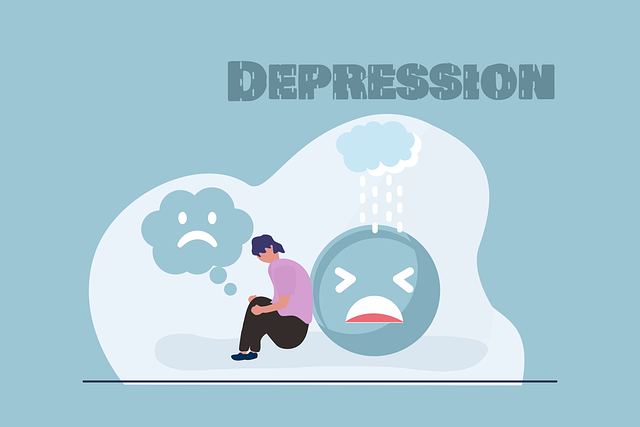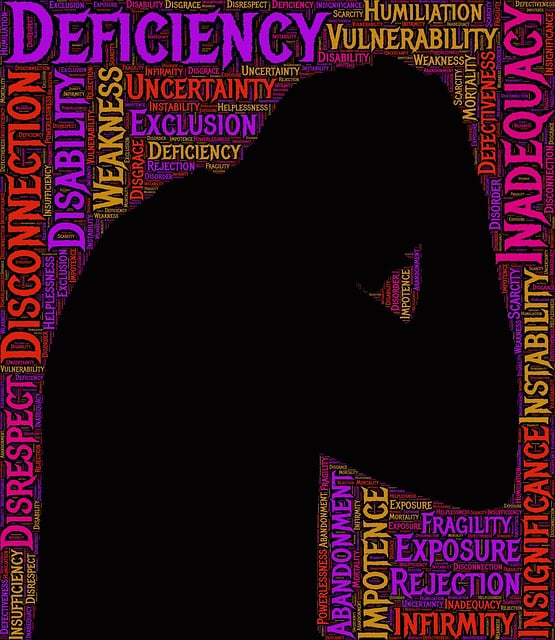Burnout among healthcare providers is a growing concern impacting well-being, patient care, and the system. Recognizing burnout involves understanding its diverse signs and causes, often stemming from intense work environments, long shifts, heavy caseloads, and interpersonal issues. Louisville Interpersonal Issues Therapy (LIIT) offers an effective solution by focusing on communication, conflict resolution, and empathy, helping professionals navigate complex relationships. LIIT promotes healthier interactions, encourages self-care routines like journaling, and fosters cultural sensitivity for better work-life balance and resilience against burnout. Employers play a crucial role in preventing burnout through supportive cultures, regular check-ins, flexible scheduling, and open discussions about mental health challenges, including LIIT where needed. By integrating self-care practices and training programs emphasizing cultural competency, the healthcare sector can empower professionals to prioritize well-being, ensuring long-term effectiveness and improved patient care.
Healthcare provider burnout is a growing concern, impacting not only individual well-being but also patient care. This comprehensive guide explores effective prevention strategies to combat this epidemic. We delve into the root causes and signs of burnout, highlighting the significance of recognizing and addressing these issues early. Key approaches include Louisville Interpersonal Issues Therapy for holistic healing, employer initiatives to foster a supportive work environment, self-care practices empowering healthcare workers, and building resilience through evidence-based techniques.
- Understanding Burnout: Recognizing the Signs and Causes in Healthcare Providers
- Louisville Interpersonal Issues Therapy: A Holistic Approach to Addressing Burnout
- Creating a Supportive Work Environment: Strategies for Employers and Managers
- Self-Care Practices: Empowering Healthcare Workers to Prioritize Their Well-being
- Building Resiliency: Evidence-Based Techniques to Enhance Coping Mechanisms
Understanding Burnout: Recognizing the Signs and Causes in Healthcare Providers

Burnout among healthcare providers is a growing concern, impacting not only individual well-being but also patient care and the overall healthcare system. Understanding burnout involves recognizing both its signs and underlying causes, which are multifaceted in this high-pressure profession. Symptoms can range from physical exhaustion and cynicism to feelings of detachment and ineffectiveness, often stemming from intense work environments, long shifts, heavy caseloads, and interpersonal issues.
In Louisville, Interpersonal Issues Therapy (IIT) has emerged as a valuable tool in addressing these concerns. This therapeutic approach focuses on improving communication, conflict resolution, and empathy among healthcare providers, helping them navigate complex relationships with colleagues, patients, and families. By fostering healthier interactions and promoting self-care routine development, including mental wellness journaling exercises, healthcare professionals can better manage stress, enhance their mental health, and prevent burnout.
Louisville Interpersonal Issues Therapy: A Holistic Approach to Addressing Burnout

Louisville Interpersonal Issues Therapy (LIIT) offers a unique and holistic approach to addressing healthcare provider burnout. This therapeutic model recognizes that burnout is often rooted in interpersonal relationships, communication issues, and a lack of cultural sensitivity within the healthcare setting. By focusing on these aspects, LIIT aims to improve self-esteem, a key factor in mental health professionals’ well-being. Through risk assessments tailored for mental health professionals, therapists help providers identify and mitigate potential burnout triggers.
The approach emphasizes the importance of creating supportive environments that foster cultural sensitivity in mental healthcare practice. By addressing these interpersonal issues, LIIT provides tools to enhance coping mechanisms, improve work-life balance, and promote overall resilience against burnout. This comprehensive strategy ensures healthcare providers can better serve their patients while maintaining their own mental health and satisfaction.
Creating a Supportive Work Environment: Strategies for Employers and Managers

In creating a supportive work environment, employers and managers play a pivotal role in preventing healthcare provider burnout. This involves fostering a culture that prioritizes employee well-being and work-life balance. Strategies such as regular check-ins, flexible scheduling, and clear communication channels can help alleviate stress and enhance job satisfaction. Additionally, promoting open discussions about mental health challenges—including interpersonal issues therapy where needed—is essential for creating a supportive network.
Investments in inner strength development and empathy building strategies can significantly contribute to burnout prevention. Training programs that emphasize cultural competency in healthcare can further strengthen the work environment by fostering understanding and appreciation among colleagues. By implementing these measures, employers and managers not only support their providers’ mental health but also enhance patient care through a more compassionate and culturally sensitive workforce.
Self-Care Practices: Empowering Healthcare Workers to Prioritize Their Well-being

In the high-pressure environment of healthcare, preventing burnout among providers is paramount. One of the most effective strategies lies in empowering healthcare workers to prioritize self-care—a key aspect often overlooked amidst the demands of their profession. Self-care practices not only enhance resilience but also foster mental wellness, a crucial element for maintaining long-term effectiveness and patient care quality. Louisville Interpersonal Issues Therapy (LIIT) offers specialized support, focusing on emotional healing processes to address work-related stress and interpersonal challenges.
Integrating self-care into daily routines encourages healthcare professionals to participate in activities that promote relaxation, reflection, and personal growth. Mental wellness coaching programs can provide tailored guidance, helping individuals develop coping mechanisms for workplace pressures. Additionally, social skills training sessions can enhance communication and collaboration, reducing the risk of burnout by fostering supportive work environments. These strategies collectively contribute to a healthier, happier workforce, ultimately benefiting both the providers and the patients they serve.
Building Resiliency: Evidence-Based Techniques to Enhance Coping Mechanisms

In the high-pressure environment of healthcare, burnout is a significant concern. Building resiliency among healthcare providers can serve as an effective defense mechanism against this issue. Resiliency, the ability to adapt and bounce back from adversity, involves strengthening coping mechanisms and emotional resilience. Louisville Interpersonal Issues Therapy (LIIT) offers evidence-based techniques tailored for these challenges. By focusing on interpersonal relationships and personal growth, LIIT facilitates self-reflection, enhances communication skills, and promotes emotional healing processes. This approach not only addresses immediate crisis intervention guidance but also fosters long-term self-esteem improvement, enabling healthcare professionals to better navigate the complexities of their work.
Healthcare provider burnout is a pressing issue, but with the right strategies, it can be prevented. By recognizing the signs and causes through Louisville Interpersonal Issues Therapy, creating supportive work environments, empowering self-care practices, and building resiliency, we can create a more sustainable and healthy caregiving ecosystem. These holistic approaches, combined with evidence-based techniques, are key to enhancing coping mechanisms and ensuring healthcare providers can thrive in their roles.














